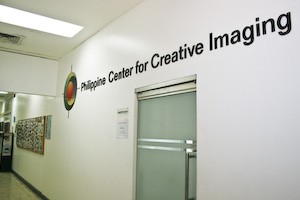Studio Lighting 101 Workshop (Face to Face)
At some point in every aspiring professional photographer’s journey, mastering studio lighting becomes a must-have skill. Unlike shooting with natural light, studio lighting gives you full control over your environment—but that level of control can feel overwhelming at first.
This workshop will guide you through the fundamentals of studio lighting, whether you’re photographing people or objects for commercial use.
What You’ll Learn
💡 Studio Lighting vs. Continuous Light – Understanding the differences and when to use each
💡 Compact Flash vs. Studio Lights – Choosing the right lighting setup
💡 Studio Setup & Essentials
- Minimum space requirements
- Must-have studio accessories
💡 Principles of Lighting – How light behaves and how to manipulate it
💡 Shooting with Studio Lights
- Lighting techniques for portraits
- Product photography essentials
- Solving common lighting challenges
Who Should Attend?
This workshop is perfect for photographers who want to:
✔️ Learn the fundamentals of studio lighting
✔️ Master portrait and product photography using artificial light
✔️ Set up a home or commercial studio
✔️ Properly use studio lights or compact flash they already own
✔️ Turn photography into a main or supplementary income source
Prerequisites
To join, participants must have:
✅ Completed the PCCI Basic Photography Workshop OR
✅ Equivalent basic photography experience (must pass an assessment)
What to Bring
📸 Camera: DSLR or Mirrorless with a hot shoe (for flash trigger) or PC socket (for studio flash)
📸 Lens: Minimum focal length of 50mm (e.g., 18-55mm, 24-70mm, 24-105mm); 70-100mm preferred
📸 Tripod: Limited units are available for sharing, so bringing your own is recommended
📸 Compact Flash (Optional): If you own one, you’re encouraged to bring it for hands-on practice
What You’ll Achieve
By the end of the workshop, you will:
📷 Identify the essential studio equipment and accessories needed for different photography assignments
📷 Understand the basic principles and techniques of studio lighting
📷 Set up studio lighting and equipment to match your creative vision
📷 Achieve correct exposure in studio photography
📷 Capture high-quality portraits and product images for commercial use
📷 Make informed decisions about which studio gear to invest in based on your goals
Important Notes
- The order of topics may vary based on the needs of the class.
- The portrait photography segment focuses on posing non-professional models. This course does not include professional models for the exercises.
Exclusive Benefits for Participants
✔️ E-Certificate of Completion
✔️ Lifetime Free Refresher – Retake the course for free (space permitting)
✔️ Alumni Discount on future courses
✔️ Eligible for the Photography NC II Certification Program, a globally recognized credential


